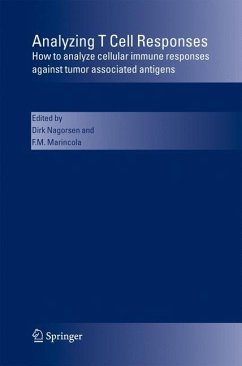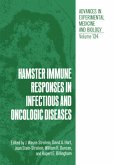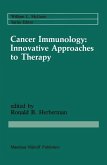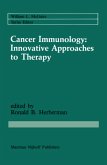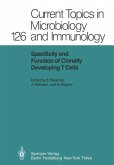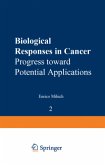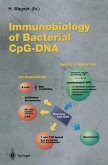Active specific immunotherapy is a promising but investigational modality in the management of cancer patients. Currently, several different cancer vaccine formulations such as peptides, proteins, antigen-pulsed dendritic cells, whole tumor cells, etc. in combination with various adjuvants and carriers are being evaluated in clinical trials (1-3). To determine the optimal cancer vaccine strategy, a surrogate immunological end-point that correlates with clinical outcome needs to be defined, since it would facilitate the rapid comparison of these various formulations. Traditional immunological assays such as ELISA, proliferation and cytotoxicity assays can detect immune responses in vaccinated patients but are not quantitative. In contrast, novel assays such as enzyme-linked immunospot (ELISPOT) assay, intracellular cytokine assay and tetramer assay can quantitate the frequency of antigen-specific T cells. Of these, the ELISPOT assay has the 5 lowest detection limit with 1/10 peripheral blood mononuclear cells (PBMC) and has been determined to be one of the most useful assays to evaluate immune response to cancer vaccines (4). However, the IFN-? ELISPOT assay is not an exclusive measure of cytotoxic T-lymphocyte (CTL) activity as non-cytotoxic cells can also secrete IFN-?. Additionally, CTL with lytic activity do not always secrete IFN-? (5). A more relevant approach to assess functional activity of cytotoxic lymphocytes would be to measure the secretion of molecules that are associated with lytic activity. One of the major mechanisms of cell-mediated cytotoxicity involves exocytosis of cytoplasmic granules from the effector toward the target cell.
From the reviews of the first edition:
"This book represents the first comprehensive description, and evaluation of the most important assays utilized to monitor immune responses against tumor associated antigens. ... Specifically tailored to the needs of clinical researchers, basic science investigators, and biotechnology innovators, this book provides information that is both sufficiently detailed and eloquently succinct. All discussions are substantiated with a comprehensive literature review. ... Analyzing T Cell Responses provides the most substantial and extensive review of immune response-monitoring techniques available to date." (Melanie Hayden, Stephanie Schroter and Boris Minev, Angiogenesis, Vol. 9, 2006)
"This book represents the first comprehensive description, and evaluation of the most important assays utilized to monitor immune responses against tumor associated antigens. ... Specifically tailored to the needs of clinical researchers, basic science investigators, and biotechnology innovators, this book provides information that is both sufficiently detailed and eloquently succinct. All discussions are substantiated with a comprehensive literature review. ... Analyzing T Cell Responses provides the most substantial and extensive review of immune response-monitoring techniques available to date." (Melanie Hayden, Stephanie Schroter and Boris Minev, Angiogenesis, Vol. 9, 2006)

